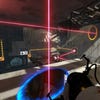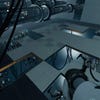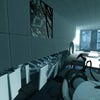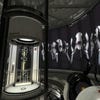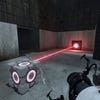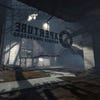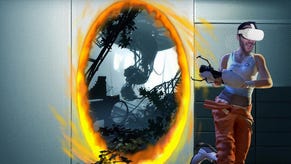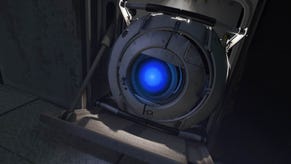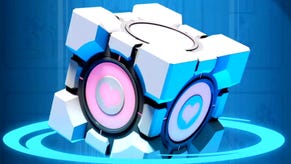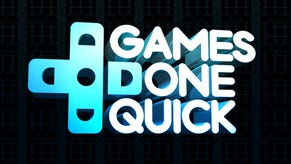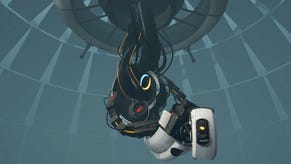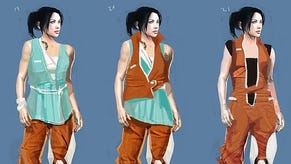Portal 2: "Let's make Caddyshack"
Erik Wolpaw on writing the great video game comedy.
Just for the weeks that we were playtesting that, everybody was like, there were these two at-odds ideas: one was "I can't wait till GLaDOS comes back" and the other was "I don't want to wake GLaDOS up." Like, "Why would I want to do that?" I kept thinking: "Because you just told me that you want her to be there!" But players didn't want to do it...
Yeah. Yeah. So we get Wheatley in there.
Then at a certain point it was like, are we really going to go through this whole game again with GLaDOS? I don't really know what to do with her arc... We wanted her to go someplace, and we felt that because she's kind of likeable in the first game and people did enjoy being with her, we wanted to have this other, external threat.
I really liked the idea of Wheatley being this guy who's not necessarily inherently bad, but in way over his head. That he's one of those people who is dumb without being necessarily aware of it... And also because it was a puzzle game, and because it was Aperture Science and the idea of science, the idea of the villain being just this thing that's been designed to be an idiot seemed like a nice thing.
And you know, he spends a lot of time obsessing over it. There's little lines in there all the way up that he's kind of... In his mind he's determining who's dumb and who's not, kind of putting himself above you. He immediately goes to assuming you have brain damage and so he's going to take a position of responsibility.
So there's this other thing, which you can barely get away from in games, which is that you need these gates in games – we do it in Half-Life, and every game does it – with the character who's going to wander around with you and open doors for you, basically. And I just really wanted a character who claimed to hack things and then never really managed to ever do it.
And also we wanted someone who sounded different to GLaDOS and who had a warmer, more human-sounding voice. We always had this idea in our heads that you could rate the AIs: the smarter they got, the more computery-sounding they got, and the dumbest AIs would be the ones who sounded perfectly human.
The last thing would be – I think we did an alright job with it, I think we actually pulled it off – I wanted to have this interactive Half-Lifey sort of character that comes with you but then also delivers an actual credible comedic performance from moment to moment. A lot of that was going to be how we set up the scenes and how the animation worked, but a lot of it was going to be having an actor who can deliver an actual comedic performance.
We knew we were going to go with some British comedian. You may or may not know this about Americans, but any time we need to cast someone who sounds authoritative and smart, Americans tend to go to British people, because even the dumbest British guy sounds vaguely smart to us. So we really also liked the idea that the dumbest thing ever manufactured by anyone would have this British accent.
It is a little bit broader this time. Part of that is what Stephen Merchant brings and... part of it is you get another writer on, so obviously a little bit of his sensibility creeps in. But we wanted to try a couple of things.
The complete sterility and dryness of Portal 1 – we were worried that across 10 hours it would feel very similar to the first one... Our biggest fear going into Portal 2 was that we would just do a retread of Portal 1. Obviously we didn't want to get so far away from it that it was unrecognisable as part of the Portal universe, but... In fact, if we had to choose one of the two, we would rather have done that than simply do something that felt exactly like Portal 1.
And the other thing we wanted to do – Half-Life has this thing where they take these science-fiction scenes that you've seen in movies, and Call of Duty does it as well with war movies – and they kind of rehabilitate them. If you tried to pull it off in a movie, people would be like, "I saw this. I've seen this a million times." But when you're actually doing it interactively it rehabilitates it.

